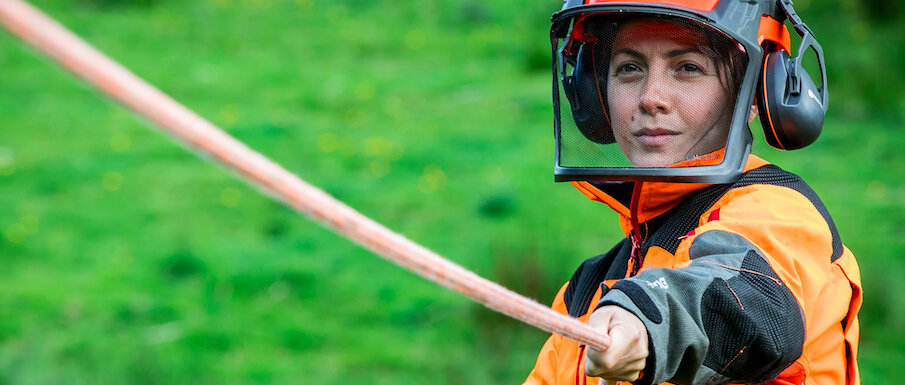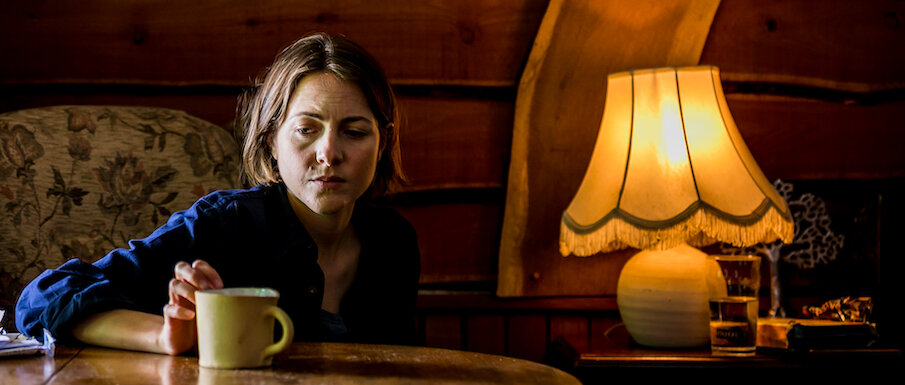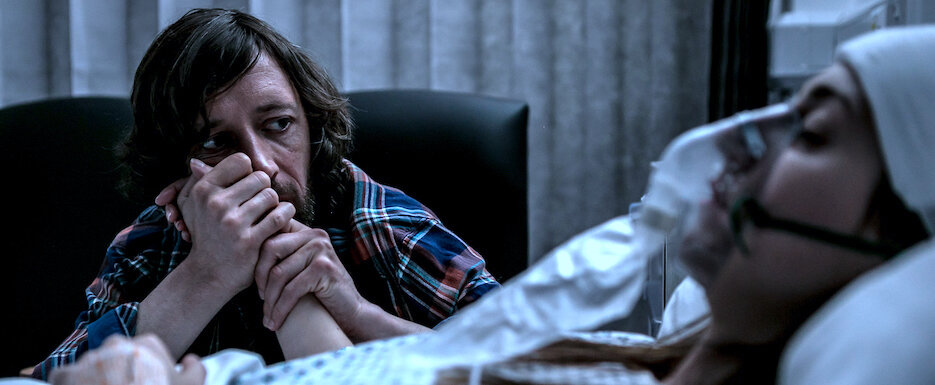The Arborist.
NOMINEE BAFTA Cymru Awards 2020
Short Film Award
Laura faces an impossible choice when she discovers her twin’s memorial tree is dying.
The Arborist is a short drama I wrote and directed, rooted in personal loss but expressed through fiction. The film invites audiences into an intimate exploration of grief, memory and reconciliation, asking what it takes to forgive the living and release the dead. With powerful imagery, complex emotion and evocative detail, this visually poetic film rewards a sustained watch in a quiet spot.
An original narrative short, made in association with BFI Network, Ffilm Cymru Wales and BBC Wales. Produced by Keiran McGaughey at Like An Egg Productions. Starring Catrin Stewart and Rhodri Meilir, the film premiered on BBC Two, was nominated for the BAFTA Cymru Short Film Award in 2020, has screened and been awarded at film festivals around the world.
“A deeply moving and beautifully crafted short film... a testament to the power of storytelling and the ability of film to evoke powerful emotions.”
“Devastating visual storytelling... Gorgeous cinematography... Packed with raw emotion, a truly human journey.”
-
The Arborist draws from my own experience of losing a loved one and places it within a fictional context. It has elements of real life – for example, the memorial tree in the film is real – and it’s also an act of imagination. When I was 21 years old, I lost my twin sister Eli suddenly. Her death was devastating and I was completely powerless in the face of overwhelming grief. I longed for answers, which she nor anyone else could ever give... to say goodbye. We planted an oak tree for Eli and sprinkled her ashes among its roots.
I wrote and directed The Arborist in part to make sense of Eli’s loss, but also to explore the healing role that objects, shared stories and memories play in connecting us to the dead and to each other, and in making the terrible irreversibility of death bearable. I wanted to invite audiences into this most intimate, devastatingly human experience – creating a sensory cinematic world through composition, colour, atmosphere, music, sound design and visually expressive storytelling. And by allowing the actors’ performances to reveal the depth of emotion: the power of forgiveness and reconciliation.
Despite the tragedy at its core, my hope is that audiences feel emotionally and visually rewarded by watching The Arborist. Through Laura and Joe’s story, we might learn that, sometimes, to forgive the ones we love, we must release the ones we’ve lost.
FILM CRAFT FOCUS
Discover mood boards created for The Arborist by costume designer Sarah Jane Perez.
Read on for insights from composer Samuel Barnes on how he created the original score for The Arborist.
“After viewing an early cut of The Arborist, it was clear to me that the role of the music wasn’t to explain the film to the viewer, but instead add light and shade to its very poignant narrative. Aside from the characters, there were some integral elements for the soundtrack to play off: the landscape, the hospital, and the dying tree.
Clare and I discussed scoring the tender moments in the hospital with fairly synthetic sounds, processed in such a way that they become somewhat human, pulsating and breathing, and emphasising the counterpoint between the painfully emotional scene playing out and the clinical hospital environment. In contrast to this, Laura’s journey of reconnecting with her brother Joe and confronting their sister’s dying memorial tree is scored with breathy string textures, intimately recorded in alignment with Laura’s fragility – these hold the scenes with an unresolved inner-conflict and weave themselves in and out as the winds blows through the densely wooded landscape.
As with the story, the music during the final scene – Burning Wood (recorded September 2019) – is a culmination of all its parts, rising with the flames as Laura finds closure.”



Stills: tomsparey.com



















